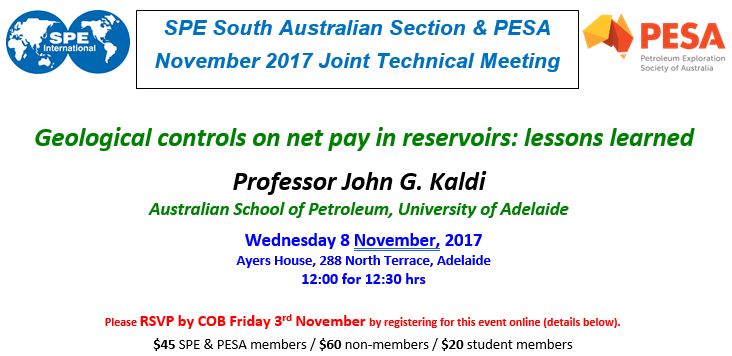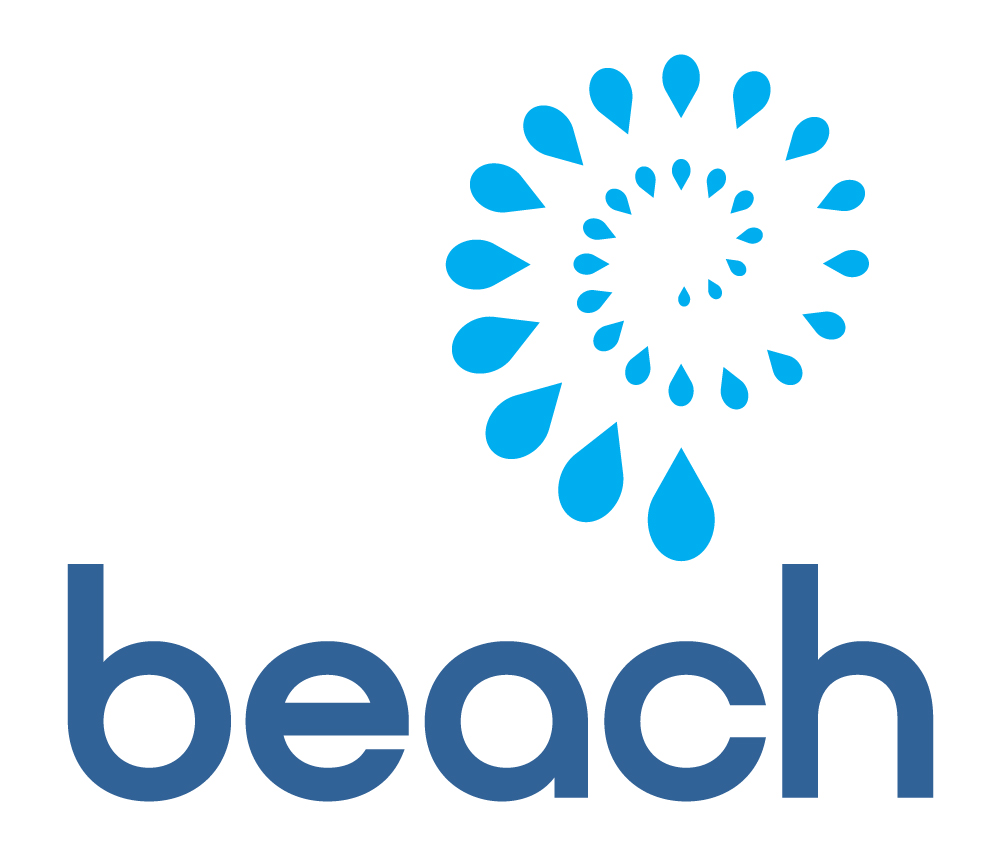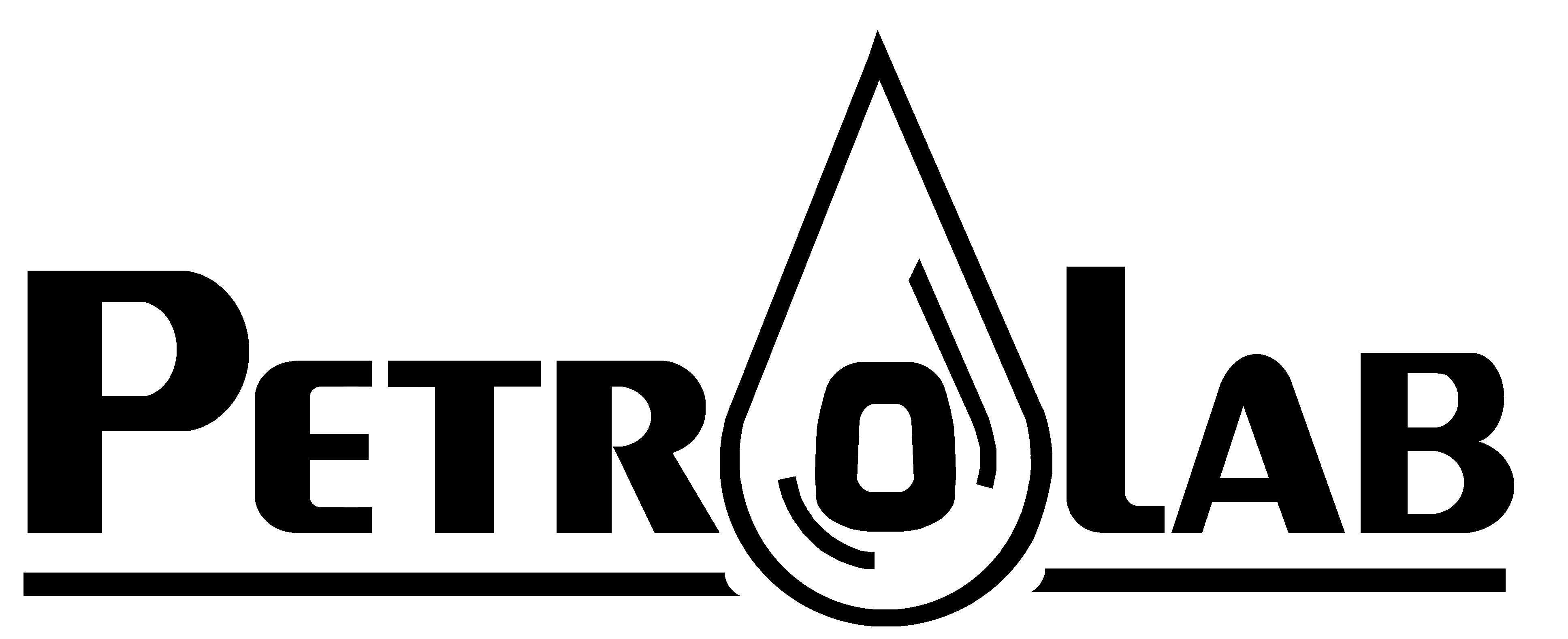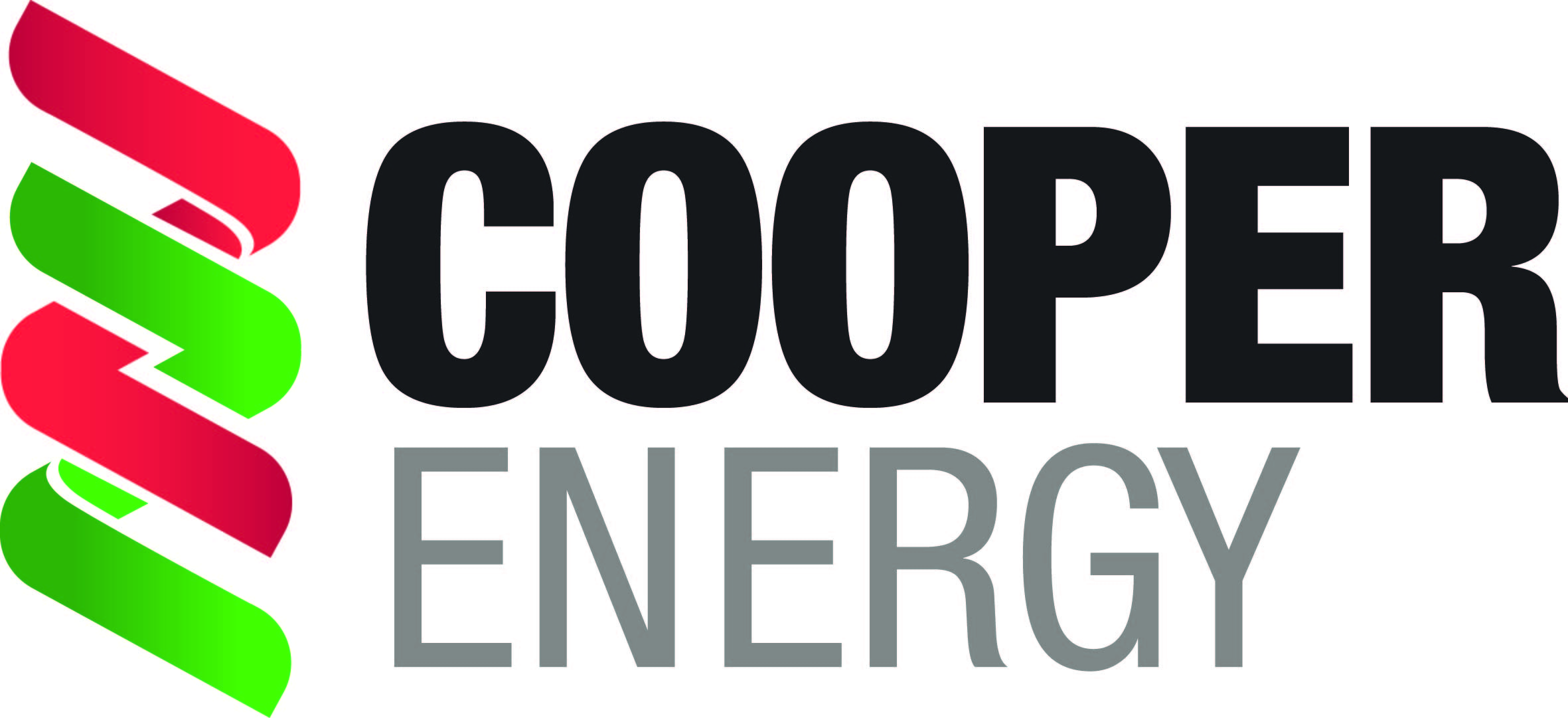November 2017 SPE / PESA Technical Luncheon
|
|
|||||||||||||||||||||
| Online registration for this event has closed |

Bookings are essential. Credit card payments should be made via the SPE SA Website http://www.spe-sa.org. For first time users, please go to “Quick Bookings” in the top right hand side and Register your details. Then go to “Event Calendar” and look for the event. Click on “View Details” and proceed to the “Register Now” button. Once you have made your credit card payment, a confirmation e-mail will be sent directly to your e-mail address. “No shows” and cancellations made after the RSVP date are non-refundable.
All enquiries should be directed to functions@spe-sa.org.
Please advise if you have any special dietary requirements on your internet booking or via email.
Net pay can be defined as the formation thickness within the hydrocarbon column that can be produced economically. The most common methods for determining net pay include the use of wireline log cut-offs, e.g. gamma ray (sand vs shale percentage), resistivity (hydrocarbon vs water saturation) and porosity (rock vs pore volume). Well tests and production data are commonly used to confirm these methods for net pay determination.
This presentation details case histories from around the world that highlight various problems with each of these methodologies.
First, wireline logs sometimes "lie". They don’t really "lie", but too simplistic assumptions of what the logs are telling us, and a lack of understanding of the fundamental rock properties and fluids in the formation, cause us to misinterpret their response.
Second, when core data are available, empirical assessments of sand shale ratios, precise measurements of core porosity and permeability (absolute and relative) and capillary pressure are commonly used to augment or support net pay determination. However, even with the availability of core, there are potential errors in these determinations, the most common of these being core plug sampling bias.
Third, production mechanism and net pay interpretation are not always considered together. Net pay on primary production, may not equate to net pay on waterflood, if the flooded formation is discontinuous. Similarly, actual production or injection zone tests (PLT, microseismic or fibreoptic) are rarely correlated to rock types in a formation, thus leading to potential mismatch between actual and interpreted net pay zones.
In conclusion, better pay determination in our industry should include: the use of rock types as a basis of net pay classification; tying the definition of net pay to field-specific production mechanism and making the judicious use of core an integral part of data collection.
WARNING: THIS PRESENTATION CONTAINS GRAPHIC IMAGES OF ROCKS AND THIN SECTIONS; VIEWER DISCRETION IS ADVISED!
Biography:
John Kaldi is a Professor of Petroleum Geology and Engineering at the Australian School of Petroleum, University of Adelaide, and holds the SA State Chair in Carbon Capture & Storage. He is also an Adjunct Professor at Institut Teknologi Bandung (ITB), Indonesia.
John’s career includes being the inaugural Head of the Australian School of Petroleum (ASP) and earlier, Director of the National Centre for Petroleum Geology and Geophysics (NCPGG) at University of Adelaide. Prior to academia, John spent 18 years in the Petroleum Industry in both technical and managerial roles with Shell, Arco and Vico.
He has received Distinguished Service, Honorary member and Special Commendation awards from AAPG and was AAPG’s International Vice-President and a candidate for President-elect. John has been an AAPG, PESA, IPA and SPE Distinguished Lecturer. He is an accomplished short course instructor, providing training to industry, government and professional societies on Development Geology, Reservoir and Seal Evaluation, Capillary Pressure Principles and Carbon Capture & Storage. He has been the author and presenter of over 150 journal articles and technical conference papers.
|
|
|||||||||||




